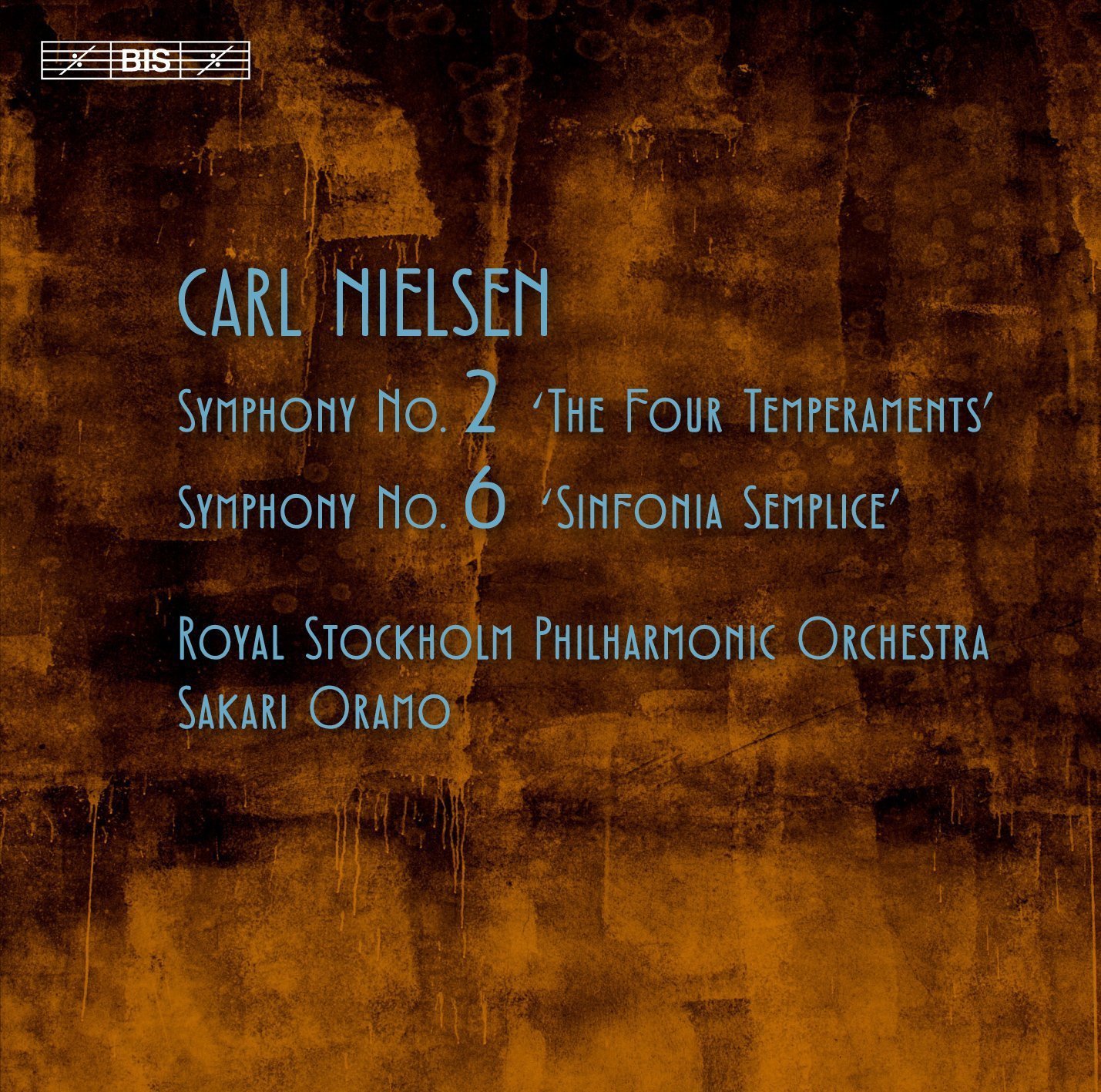 Nielsen: Symphonies 2 and 6 Royal Stockholm Philharmonic Orchestra/Sakari Oramo (BIS)
Nielsen: Symphonies 2 and 6 Royal Stockholm Philharmonic Orchestra/Sakari Oramo (BIS)
Few composers' music can blow away the cobwebs quite like that of Carl Nielsen, and David Fanning's sleeve note to this BIS disc rightly describes him as “the greatest life-affirmer in the 20th-century symphonic tradition”. It's been a joy to watch Nielsen's stock rise in recent years, and John Storgårds' new cycle of the symphonies has just appeared in the wake of Alan Gilbert's blazing New York Philharmonic set. This disc of Symphonies 2 and 6 is the final instalment of Sakari Oramo's series, and I'm tempted to conclude that it's the most consistently satisfying of all. No conductor nails each symphony's distinct character with such skill and humanity. And, as a depiction of humanity's foibles, few works are as entertaining as Nielsen's Symphony No. 2, subtitled “The Four Temperaments”. Oramo's bounding energy in the opening Allegro collerico is arresting, allied with a winning flexibility of tempo. Nielsen's quirky shifts between duple and triple time are seamlessly handled. This music rises and subsides as if it's catching breath before the next fiery outburst. There's a startling burp of indignation a minute before the movement ends; Oramo catches the moment better than anyone. Nielsen's deliberately aimless scherzo charms, and the solemn slow movement scales Brucknerian heights. All terrific, capped by a finale with the most uplifting and transformative of codas.
Nielsen's 6th is a harder nut to crack, a peculiarly complex “Sinfonia Semplice”. Repeated listenings highlight links to other, better-known works – the first movement's dissonant climax recalls that of Mahler 10, and the inventive percussion writing anticipates Shostakovich. Full-bodied strings lend real weight to the Tempo giusto's more anguished outbursts, and its close is quietly devastating. Oramo's middle movements are appropriately disquieting, and the unsettling Theme and Variations unfold with assurance. The coda is pleasingly upbeat in Oramo's performance, the bassoons' pedal note a neat way to end a symphonic career. Superb SACD sound, and virtuosic playing from the Royal Stockholm Philharmonic.
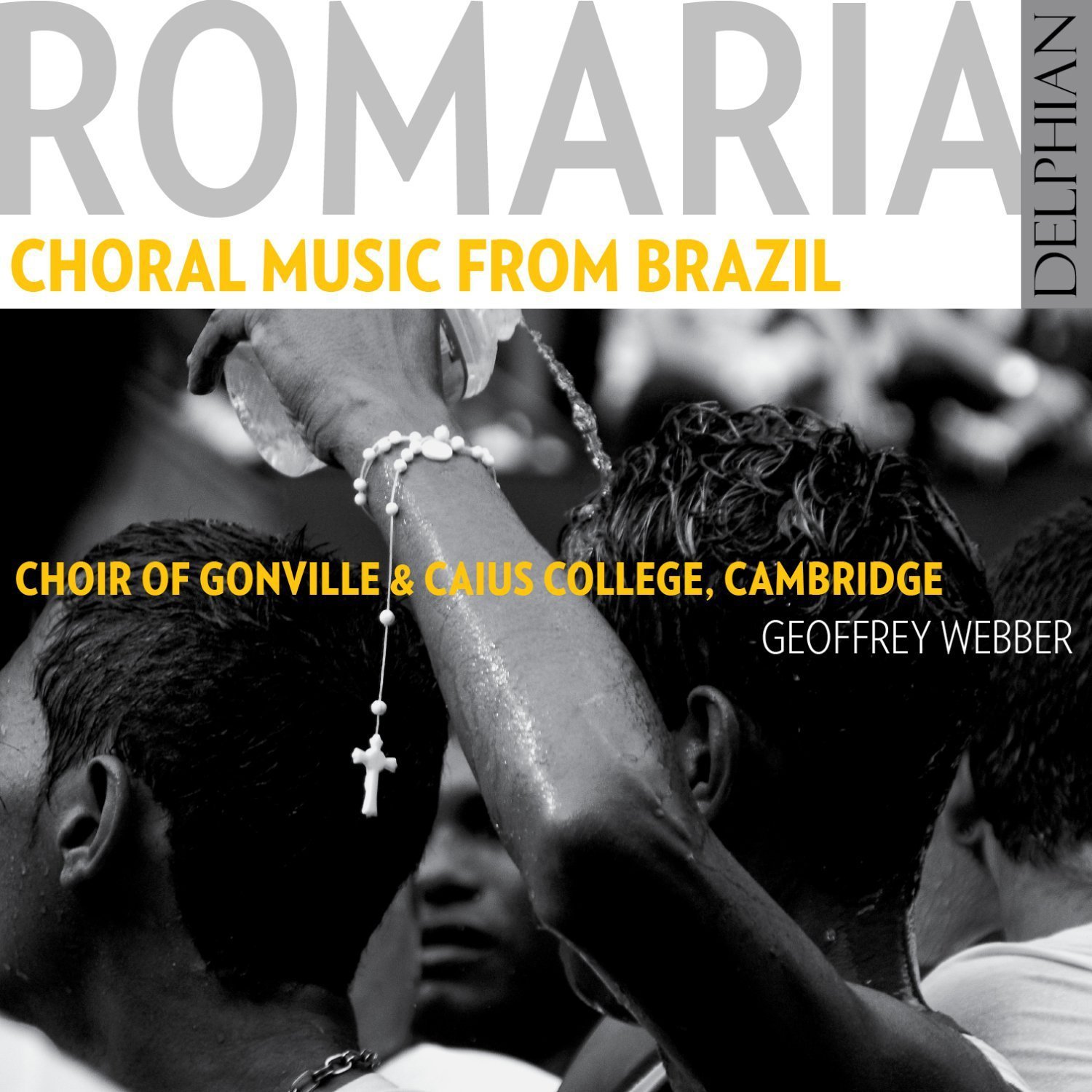 Romaria: Choral Music from Brazil Choir of Gonville & Caius College/Geoffrey Webber (Delphian)
Romaria: Choral Music from Brazil Choir of Gonville & Caius College/Geoffrey Webber (Delphian)
You envy anyone coming across this release without prior knowledge. They'll hit the play button and be met by a beguiling minute's worth of chirping frogs, birds and insects before the acapella voices steal in. Welcome to Henrique de Curitiba's Metaphors, composed in 1973. Music so startlingly beautiful that it's a shock to learn that the score remains unpublished and its original backing track is missing. Curitiba stressed that “it is good, or better, to hear Nature's voices than the polluting noises of our technological era...”, and, happily, this recreated backing tape sounds glorious. The Choir of Gonville & Caius College's last cd was an imaginative exploration of early Celtic choral music. This new one, devised with the help of academics at the University of São Paulo, presents an exuberant selection of Brazilian music, its startling diversity reflecting the country's immigrant history. Villa-Lobos is represented by his Cor dulce, cor amabile and a vibrant Magnificat-Alleluia, given extra colour by mezzo-soprano Kate Symonds-Joy. Why can't all sacred music be this upbeat? Or as cheerfully funky as the opening of the “Sanctus'” from Aylton Escobar's Missa breve sobre ritmos populares brasileiros?
More conventional, though just as attractive, are a sequence of folksong settings arranged by one Ernst Mahle, though even better is a bold transcription made by MA da Silva Ramos. Carlos A Pinto Fonseca's brief Jubiabá is extraordinary, helped by soprano Imogen Sebba's stratospheric contribution. Osvaldo Lacerda's Romaria has the text alternately spoken and sung. Most intriguing musically are the tone-clusters heard in Almeida Prado's Orácula, and the squelchy harmonies and speech which dominate Cláudio Santoro's Ave Maria. This anthology could be a dull, academic exercise, but it's fabulous. Director Geoffrey Webber's sleeve notes tell you everything you need to know about each work, but my advice would be to listen first and read later. Performances are consistently stunning. Diction is impeccable, and the whole packs an exhilarating, very un-English punch. Magical, and magnificently recorded. Which neglected choral sub-genre will Webber tackle next?
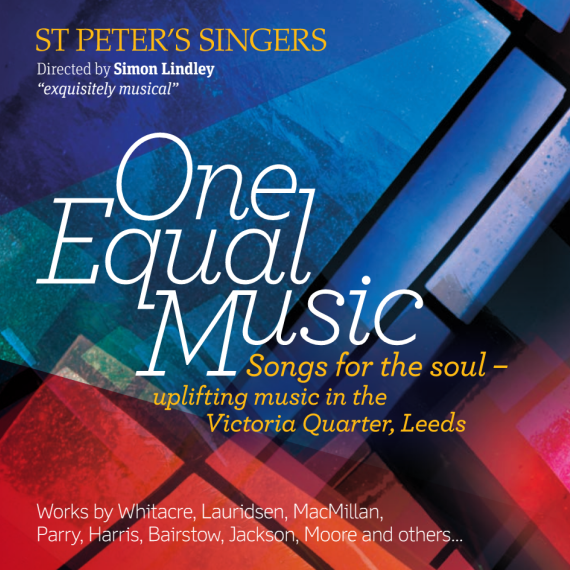 One Equal Music St Peter's Singers/Simon Lindley (St Peter's Singers)
One Equal Music St Peter's Singers/Simon Lindley (St Peter's Singers)
And so we move from the Amazonian rainforest to a shopping precinct in Leeds. Simon Lindley's St Peter's Singers are usually based at Leeds Minster. Most of us don't go to church regularly, but we do like shops, so it makes sense that this disc was recorded in Leeds' Victoria Quarter, a handsomely glazed-over side-street next to Harvey Nichols which resembles a secular cathedral, with acoustics to match. Heartfelt spirituality meets Mammon, and two impromptu performances of William Henry Harris's Bring us, O Lord God were given while shoppers passed through the arcade. Director Simon Lindley leads a well-planned, ambitious anthology of 20th and 21st century sacred music, the quality of the performances a telling reminder of just how high the standard of choral singing in the UK still is.
The stylistic range is pleasingly broad; numbers by Harris, Parry and Bairstow set against the likes of Pärt, James MacMillan and Sally Beamish. MacMillan's O Radiant Dawn is dispatched with dazzling assurance, and Beamish's In the Stillness is soft and rapt. Eric Whitacre's Alleluia is arresting and taut, neither gloopy nor saccharine. Philip Moore's Three Prayers of Dietrich Bonhoeffer are gripping, the anxiety of “Prayers in Time of Distress” melting away in the closing “Evening Prayers”. In amongst all the English settings, it's a surprise to come across an untranslated rendition of “Bogoróditse dyévo” from Rachmaninov's All-night Vigil, but it's delivered with rare skill and sensitivity. Rejoice.





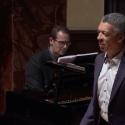


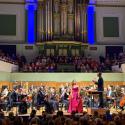
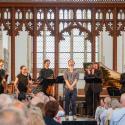



Add comment